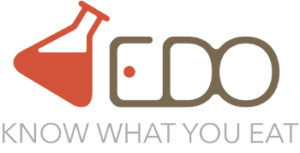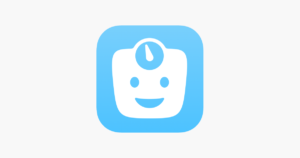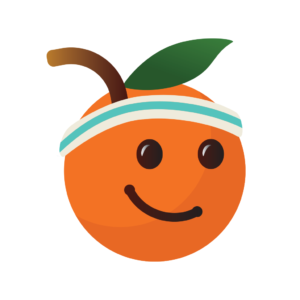Weight loss apps allow you to keep track of your body weight while working to improve your body composition. The majority of these apps are free, easy to use, and readily available on most devices.
Below, we’ve compiled a list of the ten best weight loss apps based on their benefits and features.
Rankings
1. Noom

Noom is one of the most popular weight loss programs on the market and uses a variety of methods to help individuals lose weight, including personalized coaching, incentive-based reward programs and challenges.
Developed PhDs and MDs from Ivy League schools, Noom combines all weight loss factors (including your lifestyle, diet, exercise, and your environment) to provide the best program for you. For these reasons, it’s our #1 pick.
2. Lose it

Lose it allows for the development of a personalized weight loss plan. You can record your personal information in the app, as well as your weight loss goals.
You can, then, access the app to learn about the foods you wish to consume and to keep calories within a recommended daily budget.
3. Edo

Edo’s weight loss app assists users in choosing food products that will optimize their weight loss and nutritional goals. This app includes a scanner that provides users with detailed nutritional information on packaged foods, assigns food choices a health rating, and advises on healthier alternatives.
Edo also provides guidance on healthy lifestyles and food allergies.
4. Yummly

Yummly provides video guidance on food preparation for new and seasoned chefs. As a recipe app, Yummly allows for meal planning and digital grocery lists, which improves food choices and can lead to weight loss.
In addition to advising on the nutritional information of foods, the app makes suggestions on the best meals based on your lifestyle.
5. BeachBody UK

BeachBody UK combines meal monitoring, nutrition information and exercise recommendations. With more than 1100 workouts, BeachBody UK guides you on how to stay fit while losing weight.
This app offers programs, daily calendars and eating plans, and constant online access.
6. FitYou

The FitYou application encourages multiple users to compete in maintaining a healthy lifestyle, involving family and friends in your wellness practice.
As a free fitness channel that provides video lessons on yoga, aerobics, and kickboxing, FitYou focuses on activity rather than diet as a means of weight loss.
7. Happy Scale

Happy Scale provides information on potential reasons for fluctuations in the user’s weight. The app monitors the user’s weight loss progress and offers guidance on how to reach an ideal weight.
Happy Scale analyses trends in your weight loss, milestones, and helps to predict your future weight.
8. Polar Flow

Polar Flow is a free online tool that can be used to plan physical activity. The app’s free use is optimized by the purchase of its paired wearable tracker that records the user’s level of physical activity.
By entering the required data, Polar Flow can monitor your water intake, sleep habits as well as your weight.
9. Fooducate

Fooducate is a free app that helps users eat balanced meals and avoid the effects of overeating and malnutrition. This app includes recipes and diet tips, and an online community.
By tracking what users eat, the app advises on the number of calories and passes a grade on food choices. Fooducate’s guides users on an optimal diet, health, and fitness goals.
10. One You Couch To 5k

One you couch to 5k provides step by step guidance to progress from a sedentary lifestyle to running five kilometers. The app also provides information on walking as a means to improve users’ fitness levels.
Guidance through a nine-week program encourages users to gradually develop their cardiovascular endurance.
How We Ranked
Weight loss can be achieved by making positive choices in nutrition and diet, and also through increases in physical activity. As such, we decided to include a variety of devices that helped improve diet adherence, food choices, and physical activity. Beachbody UK, One You Couch to 5k, and Polar Flow encourage users to combine healthy eating and exercise as a means of losing weight – with a larger focus on physical activity. These apps provide detailed instructions on how to incorporate and increase physical activity for a healthier lifestyle, which is why they made the list.
Apps that included recipes were also important. We ranked Yummly well because it provided recipes from seasoned chefs, as well as downloadable grocery lists. This helped exceptionally busy individuals make the right food choices without having to think.
The ability to scan foods was also important, as it allowed for easy tracking. My Fitness Pal and Edo were ranked highly because of the barcode scanner that allows for individuals to scan packaged foods before consuming them. This helped improved tracking as well as minimize human input error.
Competition can be a powerful motivator, which is why we included FitYou. FitYou encourages multiple users to share their efforts and motivations to stay healthy by creating fun exercises and challenges geared toward group participation.
Benefits
Weight loss apps assist people in adopting healthy lifestyles. Most of us would prefer to live healthier lifestyles, but assistance is often needed in making the right choices. The use of a weight loss app is a convenient method of monitoring health-related choices. Regardless of other activities, users can monitor their health and the foods they consume at any point of the day. One 2015 study found that mobile phone weight loss apps can be a useful tool for weight loss (1).
Weight loss apps can be chosen based on an individual’s needs and wellness goals, so they offer flexibility and a level of personalization, which may improve adherence to a healthier lifestyle.
Weight loss apps are easy to access: Weight loss apps are available for download on pretty much all devices and are accessible 24/7. A 2017 study found that weight loss app users value simplicity, the availability of multiple features, data storage, and ease of function (2).
As long as you have your device, it is charged, and you have internet access, the weight loss app is ready to go.
Weight loss apps may help to improve health outcomes. Many individuals struggle with disease as a result of their weight and their lifestyle choices. By following a proper weight loss plan through an app, users can help improve dietary adherence and weight loss outcomes.
Weight loss apps may help create positive changes in body composition. With most weight loss applications, users are able to improve health-related behaviors, such as monitoring the caloric content and nutritional value of foods. One study showed that mobile health interventions could serve as a way to improve healthy behaviors (3).
It is important to remember that weight is not necessarily the best indicator of health as it does not consider body composition, where the body fat is located, or any other health conditions that a user may have. Depending on a weight loss app’s features, there may be critical health information that is not being assessed.
Weight loss apps are affordable. In comparison to gym memberships and personal trainer sessions, weight loss apps are an affordable alternative to help people lose weight.
Weight loss apps can help track food consumption. Weight gain may occur because most individuals don’t give much thought to how much food they consume every day, or how many calories may be contained within a particular food choice. Many weight loss apps allow users to record what food is eaten, which allows for daily calorie and nutrition information to be evaluated. By entering this nutritional data, users can readily see why they may be gaining weight because of their food choices.
It is widely accepted that monitoring diet can lead to improved weight loss success. One study suggests that smartphone apps that monitor dietary choices can serve as a practical tool for individuals who want to achieve weight loss (4).
Weight loss apps can provide accurate nutritional information. The benefits of using a weight loss app is not just to assess the number of calories present in a food, but also to provide guidance on healthy food choices based on their nutritional value. A research study conducted in 2018 suggests that weight loss apps that include features on nutrition can complement the nutritional care delivered by dieticians and improve adherence to behavior changes (5).
A positive change in eating behavior, guided and reinforced by a weight loss app, may improve the user’s opportunities for weight loss. If your goal is to determine the nutritional appropriateness of your diet, ensure that the weight loss app you choose has the necessary features. If you have specific concerns or questions about the nutritional value of food, or if you require specialized guidance on nutrition choices, it may be appropriate for you to consult your healthcare provider, a registered dietician, or registered nutritionist.
Weight loss apps may make you more aware of the food you eat. By tracking your food in weight loss apps, you can become more aware about the nutritional and caloric contents of the food you eat. This can help you make better choices and help you asses any food intolerances you may have.
Side Effects
Weight loss apps are not a quick fix. Many weight loss app users incorrectly think that the use of the app will result in weight loss, and in a short amount of time. However, this is not true as the weight loss app is only effective if the user adopts positive lifestyle changes. As a tool, weight loss apps do not cause users to lose weight without making better food choices, reducing caloric intake, and increasing physical activity.
In order for weight loss apps to have a positive effect, they require the conscious effort of the user, as well as time to create the desired change. A weight-loss app is not a substitute for better lifestyle choices but serves instead as a tool to guide and record positive lifestyle choices. Consideration should also be given to the user’s motivation to lose weight, the social support a user has in their weight loss journey, and their ability to adhere to positive lifestyle choices.
Weight loss apps may not be completely accurate. Weight loss apps are one tool that may be useful in tracking calories and food intake. But, there is no certainty that nutrition and caloric calculations are 100 percent accurate. A 2015 study showed that many weight management apps lack the quality required to provide completely accurate nutritional data and that more research is required to determine the effectiveness of weight loss apps in weight management (6).
Weight loss apps can be a distraction. Users may find that they are checking on their weight loss data more than is necessary, leading to distraction from other matters. Too much emphasis may be given to the app itself, and any potential changes in weight, rather than focusing on other more productive activities. Weight loss apps are but one tool that can be used in conjunction with many other tools to achieve weight loss. Further, in focusing solely on weight loss, other positive health changes that can be achieved through better nutrition and increased physical activity may be overlooked.
Weight loss apps are not a sustainable long-term plan. While the apps may help to initiate and develop a healthier lifestyle, it may not be suitable for users to rely on as part of a long term plan, or to use throughout their lifetime. Realistically, it may be impossible to track every single food choice that is consumed daily or to adhere to exacting food choices at all times.
Even with a concerted effort, it may prove difficult for even the most diligent person to maintain the eating habits suggested by a weight loss app. The conclusion of one research study found that many weight loss apps would be more helpful to users if the apps included more strategies on motivation and other behavioral change strategies (7). Similarly, adhering to a particular diet for an extended period of time may exclude foods that contain essential nutrients that are recommended for healthy living. This is partially why it is best to consult with your doctor or a dietitian.
Weight loss apps may have a negative psychological effect on an individual. Some individuals who make use of weight loss apps may set unrealistic or unhealthy weight loss goals for themselves, which may cause some health risks. One study set out to understand the potential impact of weight loss apps on disordered eating behaviors. The researchers found that some participants acknowledged that apps worsened some negative eating habits (8).
Weight loss apps may emphasize weight over health, and calories over nutrition. While users of weight loss apps generally want to achieve some amount of weight loss, it is important that it is done in the appropriate manner and as part of a healthier lifestyle. Eating healthy involves enjoying nutrient-dense food in appropriate portions. Many individuals have specific and complex dietary needs, so a weight loss app may not be appropriate for their lifestyle.
Concentrating solely on numbers (weight or calories) should not substitute healthy eating and regular physical activity. This type of narrow focus may be detrimental to overall health, especially in special populations. There may be many situations where a weight loss app may not be appropriate, such as pregnancy, certain diseases, during medical treatment, and during childhood.
Weight loss apps may not provide accurate nutritional information on all foods. The nutritional information of every single food or meal is not contained within every weight loss app. There are simply too many foods and food combinations that would need to be contained with the app. Because of the limited data held within weight loss apps, their practicality while dining out may negatively impact the user’s ability to make sound food choices. However, some apps do offer the ability to input ingredients used.
Recommended Usage
Weight loss apps can be used as often as one needs. You may need to consult a medical practitioner to ensure weight loss apps are an appropriate tool in weight management for your desired goals.
For the best results, you should use them every day to track food, calories and exercise. This will ensure you are sticking to the plan and tailor it to how your progress is going. Using weight loss apps intermittently will not yield the best results, especially if it’s for the purposes of weight loss.
FAQ
How do weight loss apps help you lose weight? Weight loss apps help you lose weight via exercise and food tracking. Many weight loss apps also have components that are meant to increase your motivation, including point systems, graphs and even community encouragement and support. There are a variety of weight loss apps with with different features, so it’s important to do your research and experiment to find which style is right for you.
Do weight loss apps help you lose face fat? Weight loss apps can’t help you lose region specific fat. However, they can help you lose body fat overall, which can cause your face to appear slimmer.
What is the best weight loss app? The best weight loss app will likely be the one that you will use consistently, and one that has the features you need to achieve your goals. Consulting with your trusted friends and family for which app they have used and recommend will be the best way to go about determining what might work well for you. If they have found one that they find helpful, and their lifestyle and goals align with yours, then the app might be a good choice for you.
Which weight loss app is suitable for people with health challenges? If you have health challenges, medical conditions, or if you are recovering from an illness or injury, choosing an appropriate weight loss app must be done in consultation with your health care team.
Speaking with your health practitioner will make things easy for you as they can advise you on the appropriate lifestyle changes you may make, and if a weight loss app is suitable for you to use.
How long do you need to use a weight loss app before you see results? Successful weight loss will depend on the manner in which you use the app, and if you adhere to the suggested dietary and activity recommendation. Every person is unique, and weight loss may come more easily for some than others.
Why were weight loss apps designed for? Weight loss apps are a tool to guide, track, and record positive lifestyle changes. It is in these lifestyle changes that causes the desired results.
Which weight loss app is good for an overweight individual? Many of the weight loss apps listed in our top ten may be appropriate. A variety of these apps include unique features which can support and guide individuals towards weight loss, including calorie tracking, grocery lists, meal planning and exercise recommendations. If you are overweight and considering using a weight loss app, consult your physician first to see if it’s right for you.
Which weight loss app is good for someone trying to maintain their current weight? While most weight loss apps can help you reduce your weight, you can set your individual goals to maintain your current weight. MyFitnessPal allows you to maintain your current weight, by tailoring your calories to the goals you set. As long as you follow the plan, you should easily maintain your weight.
Why do some weight loss apps emphasize exercise, while others only focus on food? A healthy lifestyle consists of many elements, including diet and exercise. As there are many different fitness apps available, you can choose one that fits your needs and lifestyle. If you feel that your nutrition is on point, you may want to choose a weight loss app that is only geared toward physical activity. Conversely, you may be a very active person that wants guidance on nutrition and meal planning, or you may be looking for a weight loss app that can do both.
Are all weight loss apps good for your health? The way a weight loss app is used determines whether or not it is good for your health. A weight loss app is not meant to substitute the care, advice, and evaluation of your health care team.
As a weight loss, activity, and nutritional guide, this type of app can be a helpful addition in assessing and improving your health. It is important to remember that the purpose of the weight loss app is to guide you in making healthier food choices and help you engage in regular physical activity. This is what causes the weight loss, which can have a positive effect on many other areas of your life.
How often do you need to use a weight loss app for it to be effective? For a weight loss app to be effective, a person must use the app every day, recording all activity performed and food consumed.
How much exercise do you need for weight loss? Many experts recommend 75-150 minutes of moderate to vigorous aerobic activity per week for healthy weight loss to occur.
Can weight loss apps prevent the presence of diseases or illness? There is no scientific proof that any weight loss app can diagnose or prevent the development of a disease, health condition, or any kind of physical ailment. Weight loss apps are intended to be used as a tool for guiding weight loss, that’s it. However, achieving and maintaining healthy body weight and body composition may reduce your risk of a number of health conditions.
How long do the weight loss apps stay on my phone for? Weight loss apps are present on your mobile devices and can be deleted or substituted with ease. Paid weight loss apps will stay on as long as you continue paying. These apps may protect against personal data breaches better and provide higher quality weight loss resources.
Are weight loss apps worth it? Weight loss apps can be worth it if they are used properly and help you achieve results. A weight-loss app may help in your weight loss goals if you find that recording and evaluating data keeps you on track. Some apps also offer additional social support or games which may further motivate you to achieve your health-related goals. If these aspects sound like they may help you further your weight loss goals, a weight loss app may be entirely worthwhile for you and your life.
What tools or features are missing from most weight loss apps? While a weight loss app can be an excellent tool, it will take a great deal more than an app to achieve your weight loss goals. For example, having the necessary social support can help increase the chances that you accomplish your goals. You may also need access to workout equipment or a workout space to help achieve these goals.
Are weight loss apps appropriate for all ages? Living healthy is not restricted to a particular age group. However, as a child’s body goes through many complex changes, a weight loss app is not appropriate. If you have questions or concerns about a child’s weight, consult with their health care provider on the appropriate course of action.
Is a weight loss app a good substitute for a registered dietitian? A weight loss app is very different from a registered dietitian. A registered dietitian will consider your entire health profile, your weight, body composition, lifestyle, budget, and culture to make realistic and appropriate nutritional recommendations. On the other hand, a weight loss app can be a useful tool in tracking and guiding your progress. Yet, it may not take into account specifics regarding your current health and economic status. If you have any health concerns, a registered dietician may be the best place to start your weight loss journey as opposed to simply using a weight loss app.
What weight loss apps are free? Many of the apps on our top ten list are free, with subscription plans available. These subscriptions require you to pay a fee for additional features or additional use of the app.
Do weight loss apps work? When used properly and alongside healthy lifestyle changes, a weight loss app can be a great tool to guide your weight loss. It can also help you make better choices when it comes to the food you consume. Yet, if you are only using the app intermittently or ignore the suggestions made, it might not work for you.
Which weight loss apps sync with Fitbit? MyFitnessPal is able to sync with your Fitbit, helping you stay on track toward your weight loss goals.
Which weight loss apps sync with the Apple Watch? MyFitnessPal and Lose it have the capability to sync with the Apple Watch. This way you can track your progress on your watch face, without always having to check your phone or tablet.
Can weight loss apps help me come up with healthy foods and recipes? Some weight loss apps can help you find new recipes or foods. Yummly is a great example of this. You can save recipes and filter them according to your dietary preferences, allergies, or cooking abilities. However, this particular app doesn’t have a meal plan option. Thus, you may need to use it in combination with another weight loss app, such as MyFitnessPal, or Lose it.
What are the best strategies for weight loss that weight loss apps incorporate? Weight loss apps use a variety of proven strategies to help, including calorie tracking, competition, and exercise recommendations. They can also provide weight loss, specific meal plans that include whole foods, high protein foods, and low glycemic recommendations.
Do weight loss apps help you speed up weight loss? Weight loss apps can help you lose weight faster by providing a detailed roadmap for you to follow. Weight loss apps can also help you lose weight by providing community support and completion to further motivate your weight loss efforts.
Do weight loss apps incorporate intermittent fasting? Weight loss apps normally don’t incorporate intermittent fasting into their plans. This is because they are built around eating, exercising, and tracking, not fasting.
Do weight loss apps use crash diets? In general, weight loss apps do not provide crash diets. This is because they can be dangerous for your health. Crash diets are short term intense diets with one goal in mind: lose weight as quickly as possible. It often involves severe restriction and extensive exercise, which can damage your metabolism in the long run. Furthermore, people often become malnourished due to the lack of food, which can cause a ton of other issues. Crash diets may also cause mental health issues and a ton of rebound weight gain, which is very unhealthy for the body.
Do weight loss apps include juicing cleanses? While weight loss apps can provide nutritional information on juices, it doesn’t incorporate juice cleanses or detoxes. There is no science to back the effectiveness of these for long term weight loss. As such, it is not appropriate to use juice cleanses on a weight loss app. If you are going to embark on a juice cleanse or detox, you should do so under the guidance of a medical professional so that you remain as safe and healthy as possible while maximizing your weight loss.
Do weight loss apps cause a slow metabolism? There is no research to show that weight loss apps cause a slow metabolism. However, excessive dieting may cause a down regulation of thyroid hormones, which can cause a slower metabolism.
Related Articles
Recap
Weight loss apps that can assist users in optimizing their nutrition, reducing caloric intake, and improving their lifestyle. In order to be effective, weight loss apps require users to have the motivation to lose weight and to be willing to use the app often enough to achieve their goals.
Weight loss apps are readily available for most devices, and the majority of the apps are free to use. Many weight loss apps promote fitness, encouraging users to exercise as well as make better dietary choices. If you have any health concerns or limitations, it may be best to consult with your doctor or a dietitian before beginning to use a weight loss app. This can ensure you don’t put your health at risk and that you’re able to work toward healthy, safe, and sustainable weight loss.
For FitBug’s #1 weight loss app recommendation, click here.